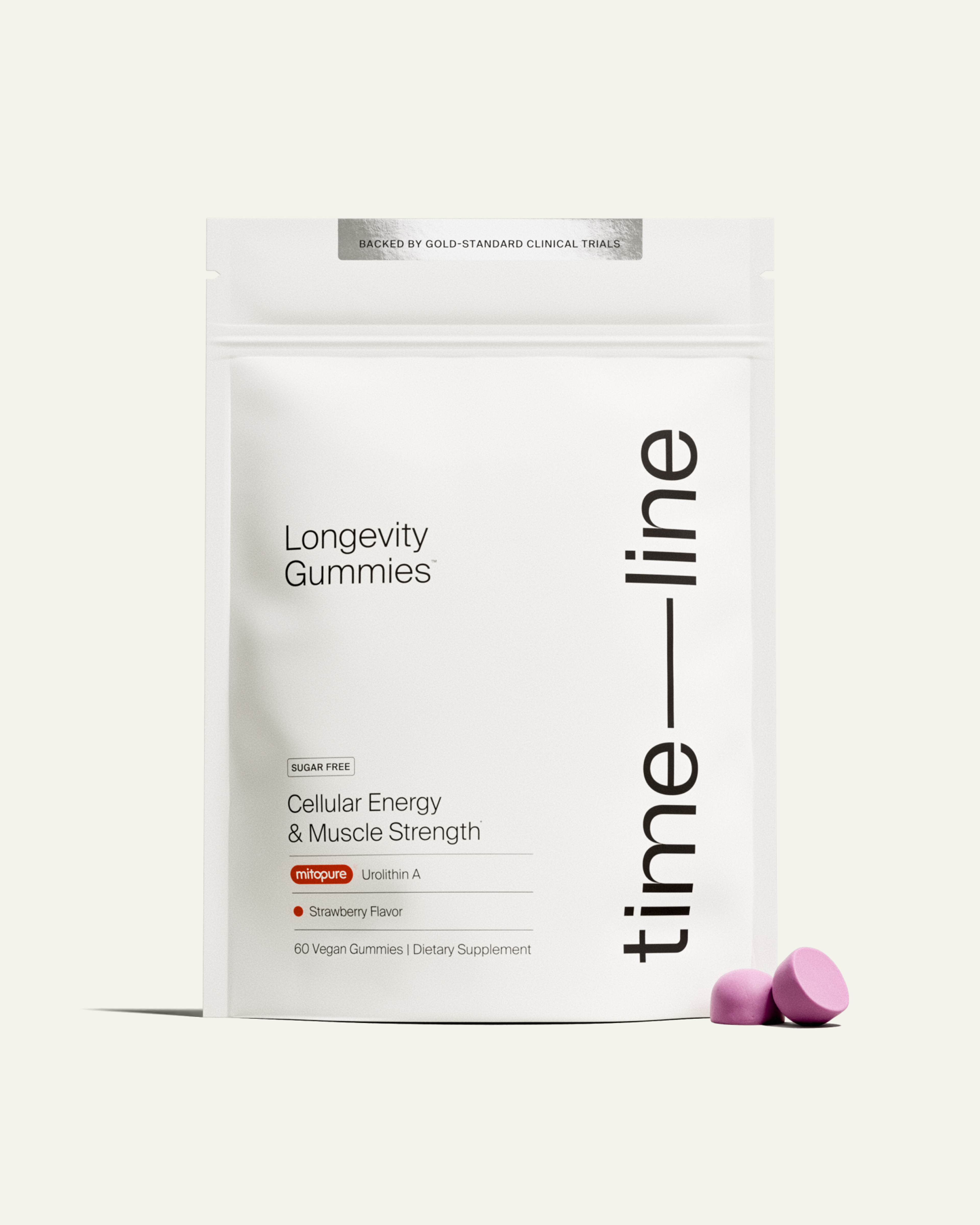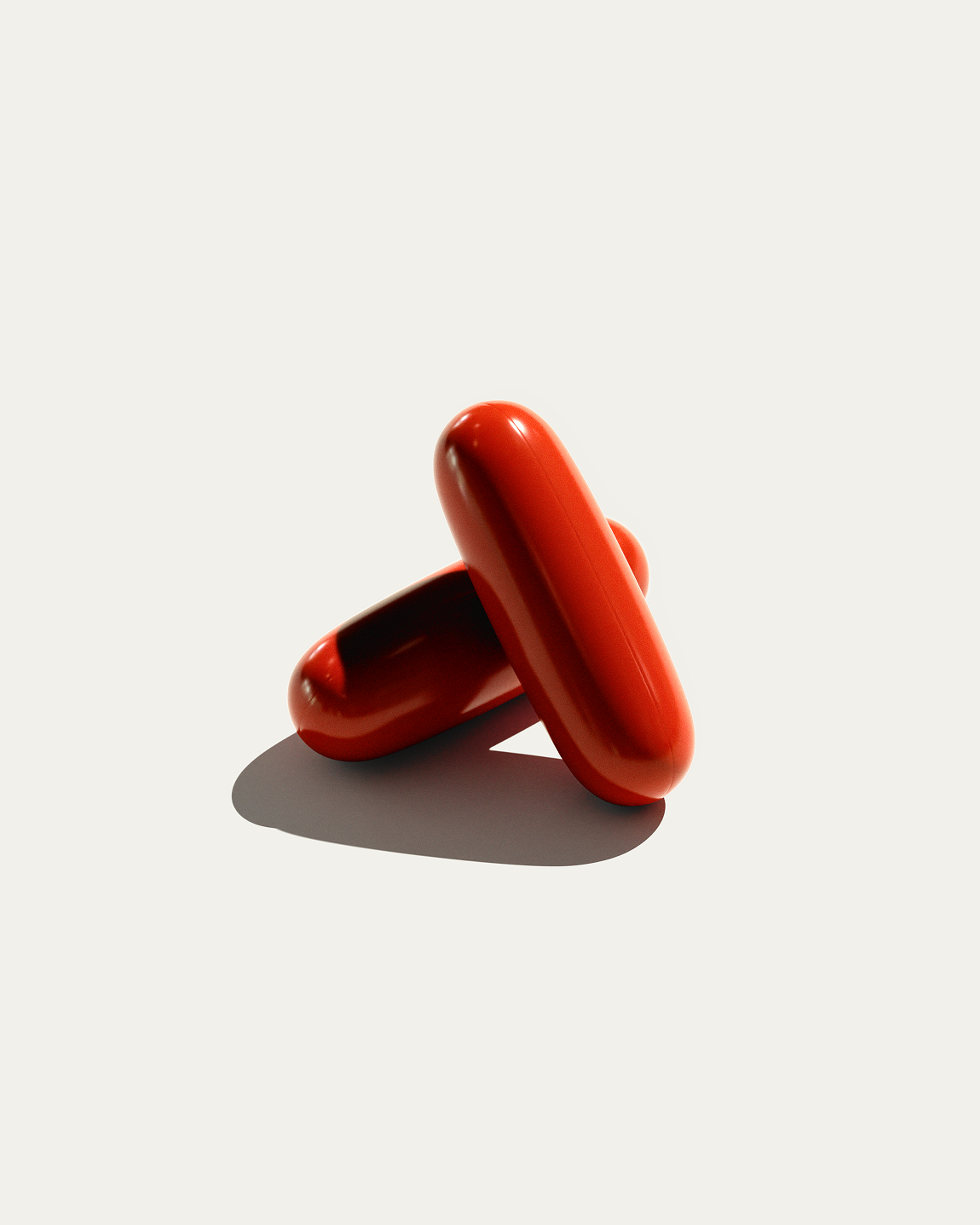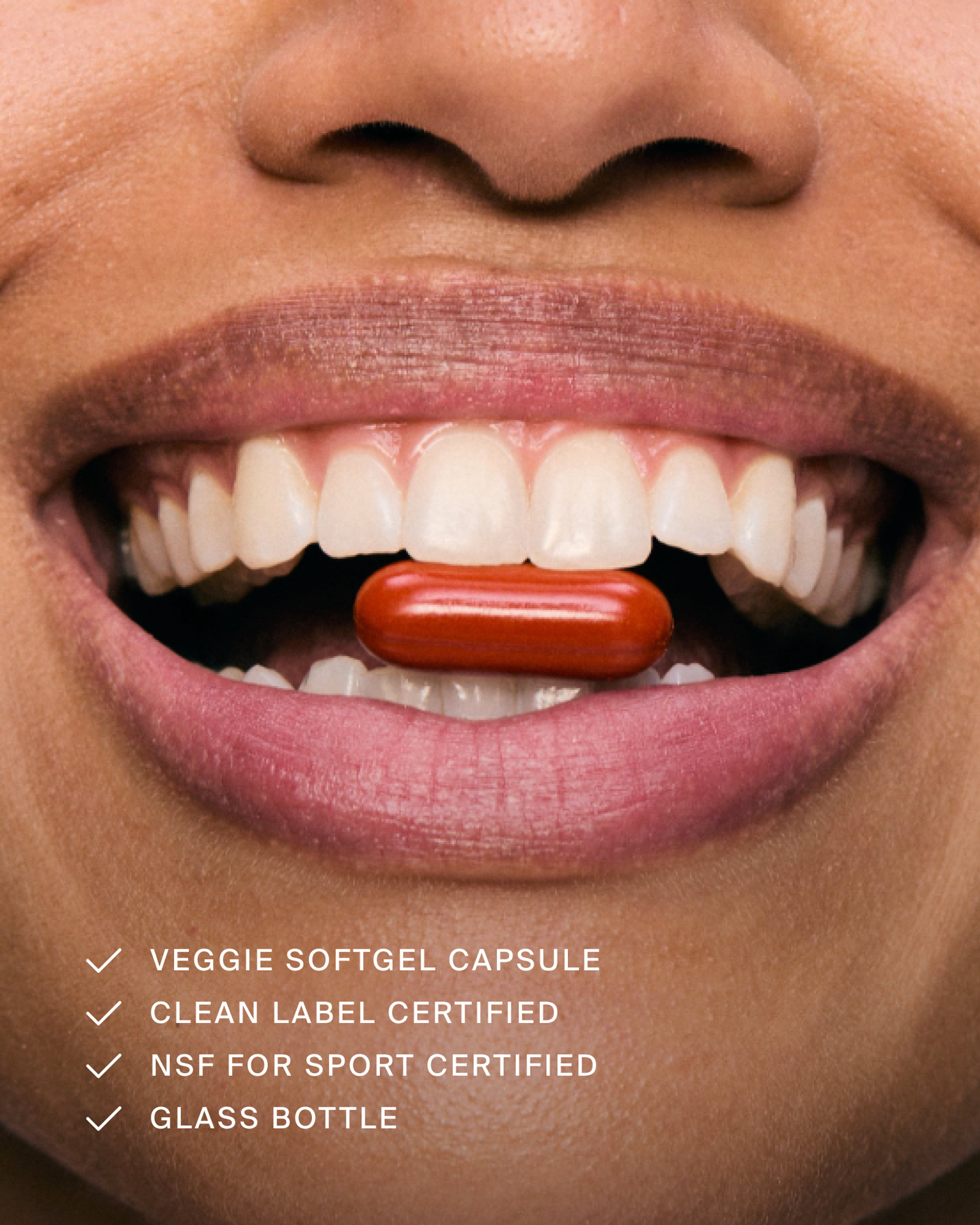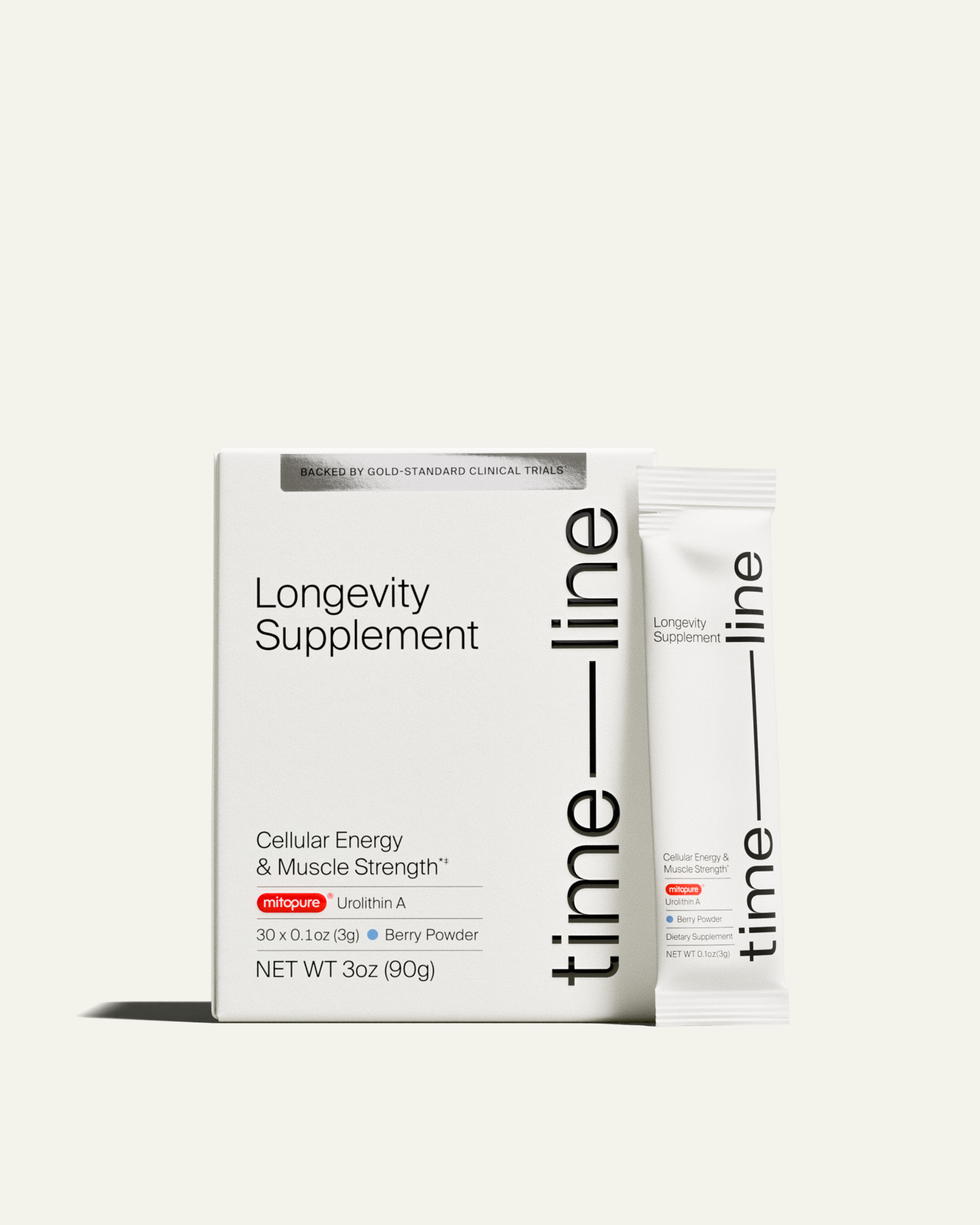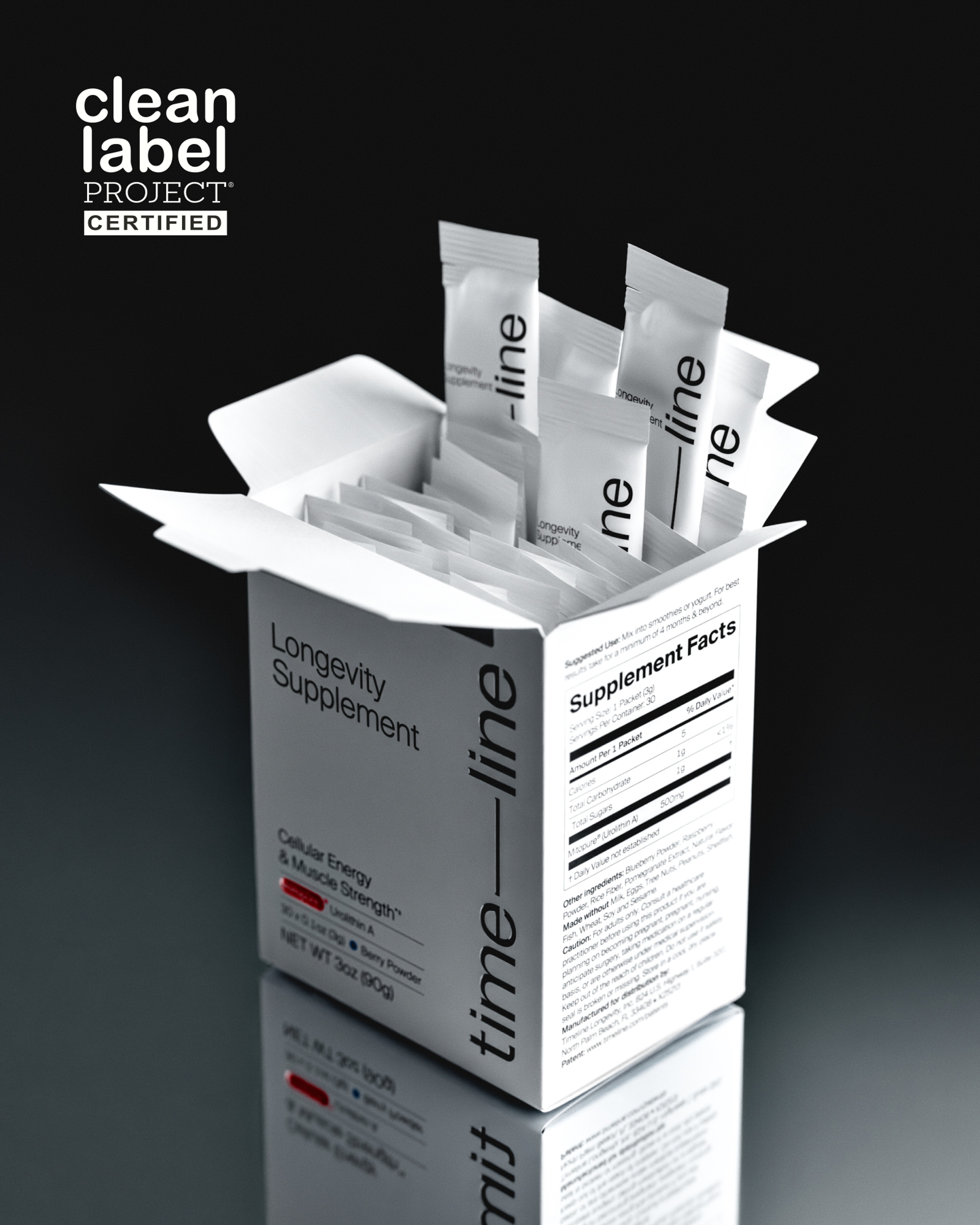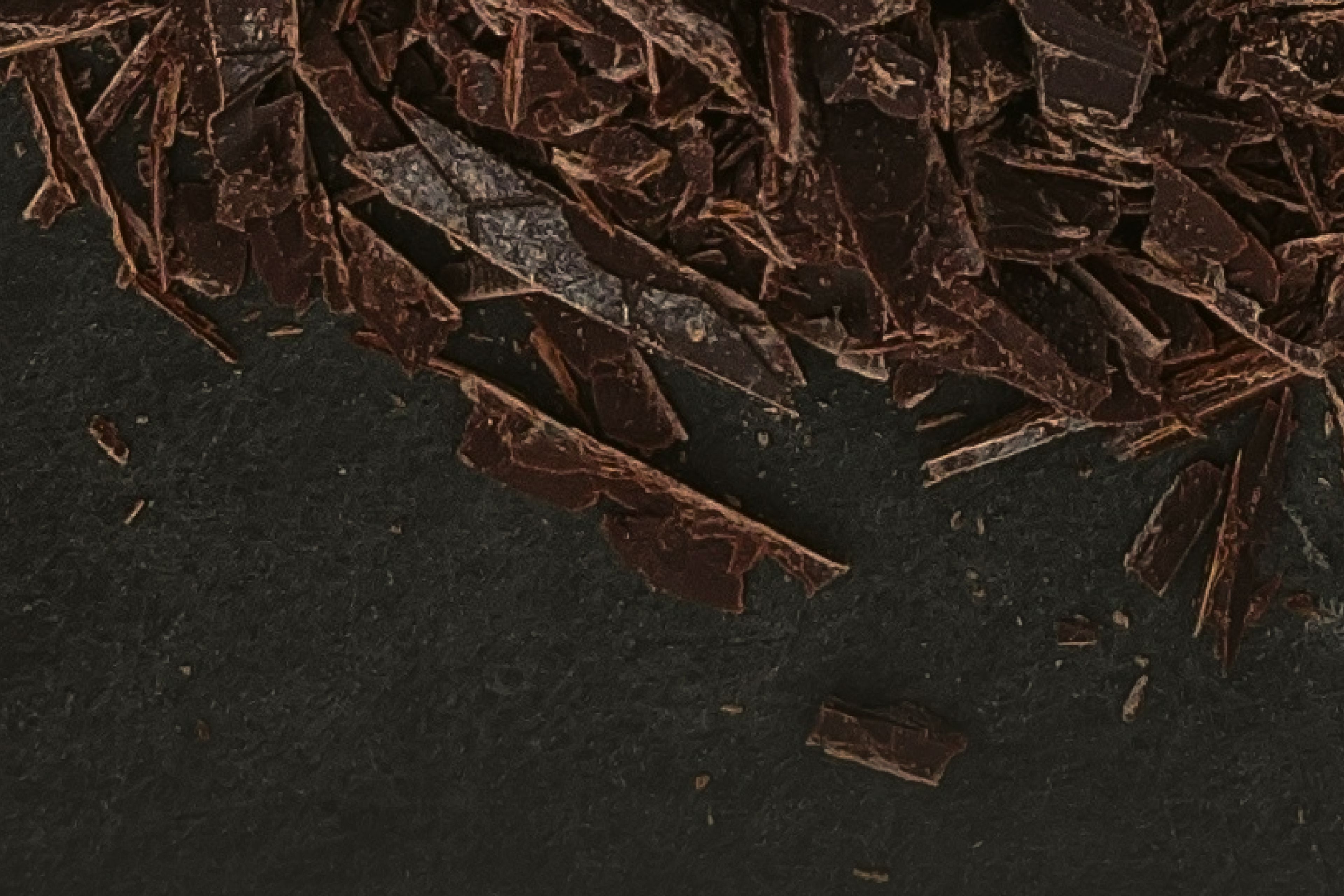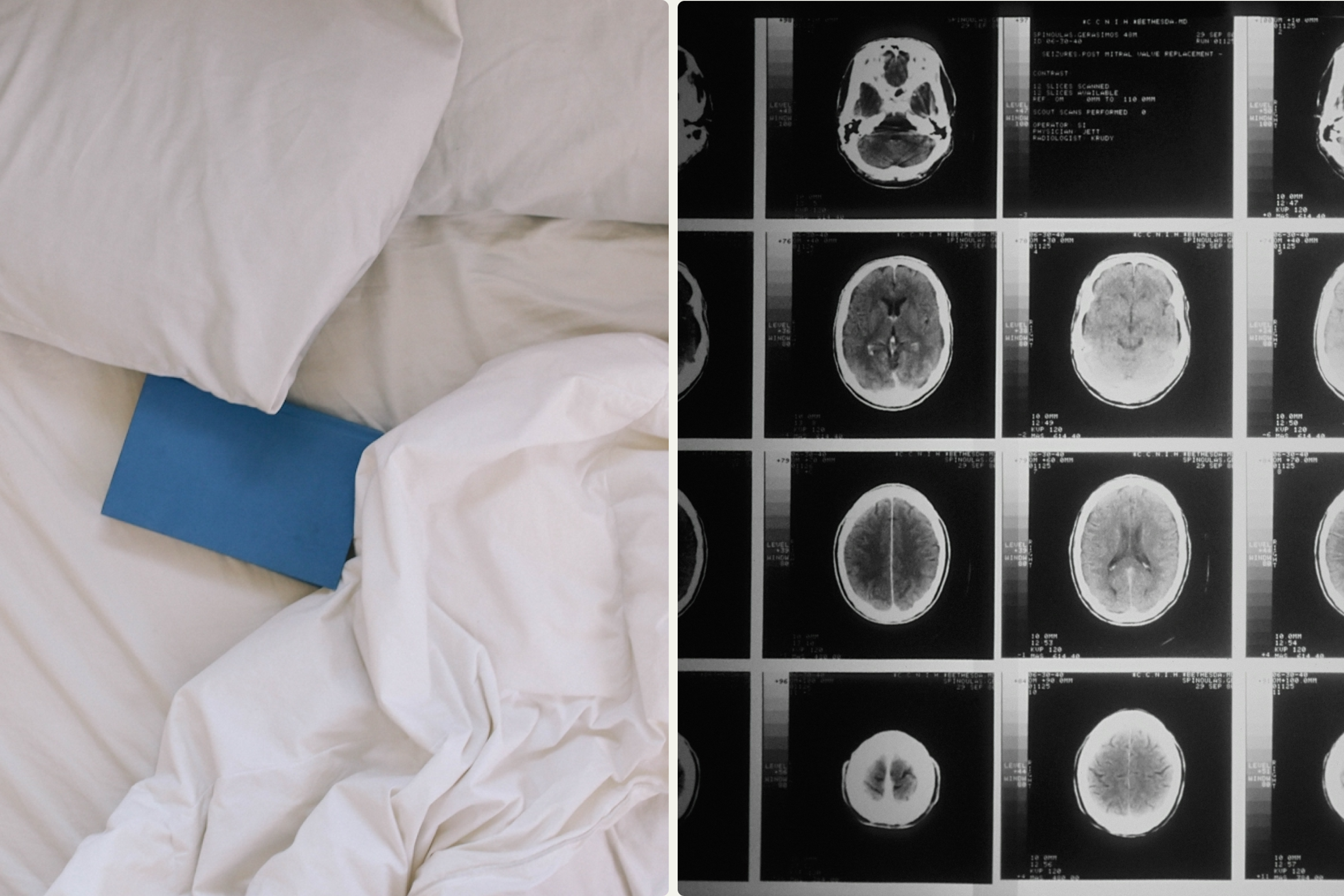Creatine benefits for health, performance, and the brain
Curious about creatine benefits for health? Learn about its potential role in boosting muscle, brain health, and longevity.
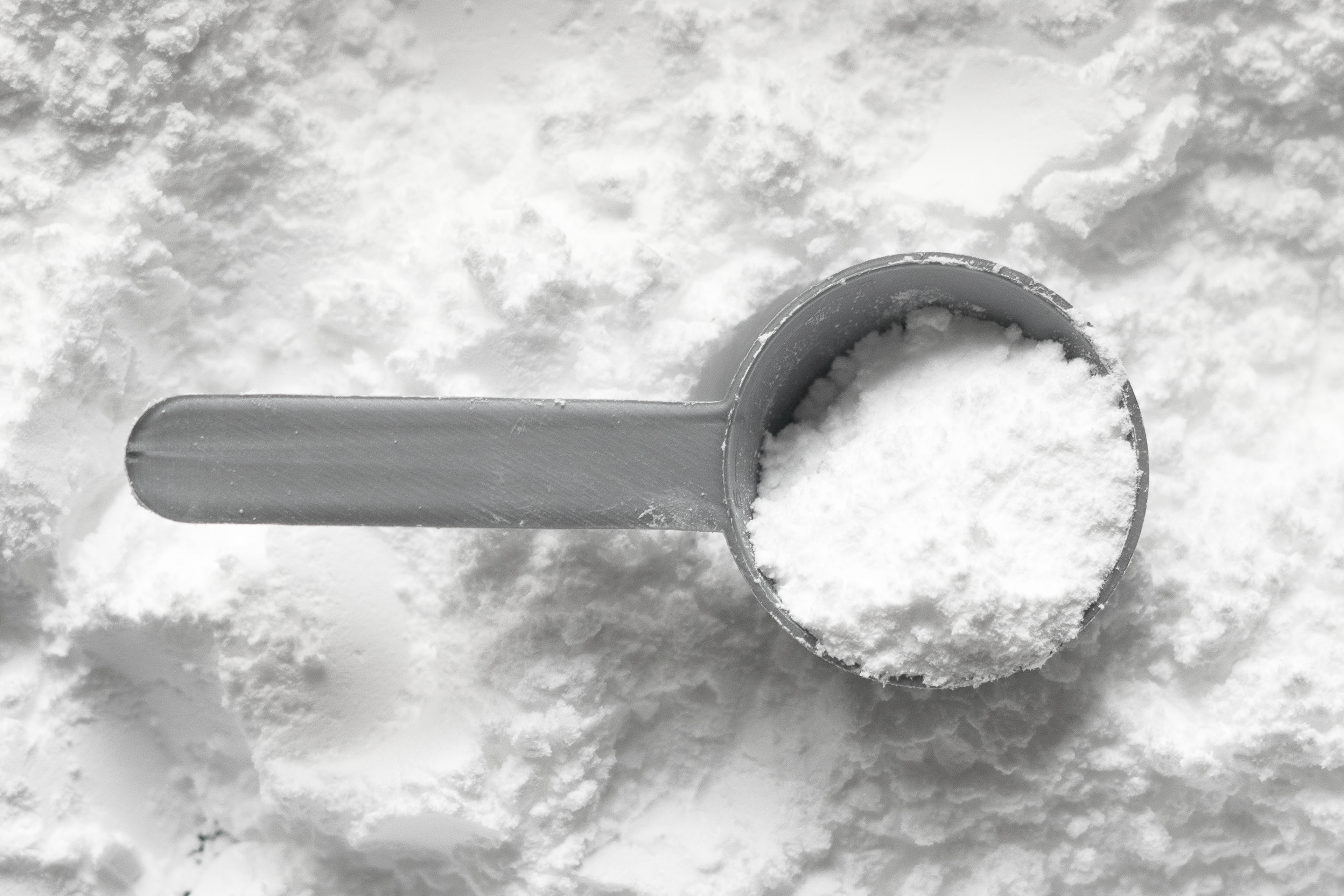
What to know
Creatine supplements, adequate protein intake, and weight lifting can build muscle over time, benefit brain function, and support mitochondrial health.
Several well-conducted trials demonstrate creatine's safety and efficacy.
Other supplements linked to these benefits include Urolithin A in Mitopure®.
Urolithin A benefits muscle health and endurance across all age groups and a strong safety profile demonstrated in human trials.
Creatine is one of the most popular supplements used among active people for its potential to build muscle and enhance workout performance. It is also becoming widely used for its brain boosting and longevity benefits. But what does creatine do, and is it really worth the hype?
The human body makes creatine from three amino acids or protein-building blocks - L-arginine, glycine, and L-methionine. It is primarily stored in our muscles (95%), while the remaining 5% is in the heart, brain, and testes.[1]
About half of our daily creatine needs come from what the body makes, and the other half comes from dietary sources. The best sources of creatine come from foods like red meat and fish or dietary supplements. Plant foods do not contain creatine, so vegetarians and vegans may need to turn to supplements to ensure they are getting enough.
Most of our stored creatine is in the form of phosphocreatine, which helps to generate cellular energy - ATP - by donating its phosphate group. Your body can then use this energy to help out in several bodily.
Creatine benefits
Several benefits are associated with taking creatine supplements, particularly creatine monohydrate, for muscle, brain, and mitochondrial health. Many studies show taking creatine in doses of 3 - 5 grams daily is best to achieve the health benefits, while others suggest following a loading protocol.

Muscle
Studies have shown that taking creatine alongside weightlifting exercises and adequate dietary protein can enhance muscle growth. When you first start using creatine, you may experience some water retention, but using it regularly can boost energy and lead to muscle growth in time.[2]
Creatine is also linked to increased lean body mass and muscle function when done with resistance training, which may be associated with improved physical performance.[3]
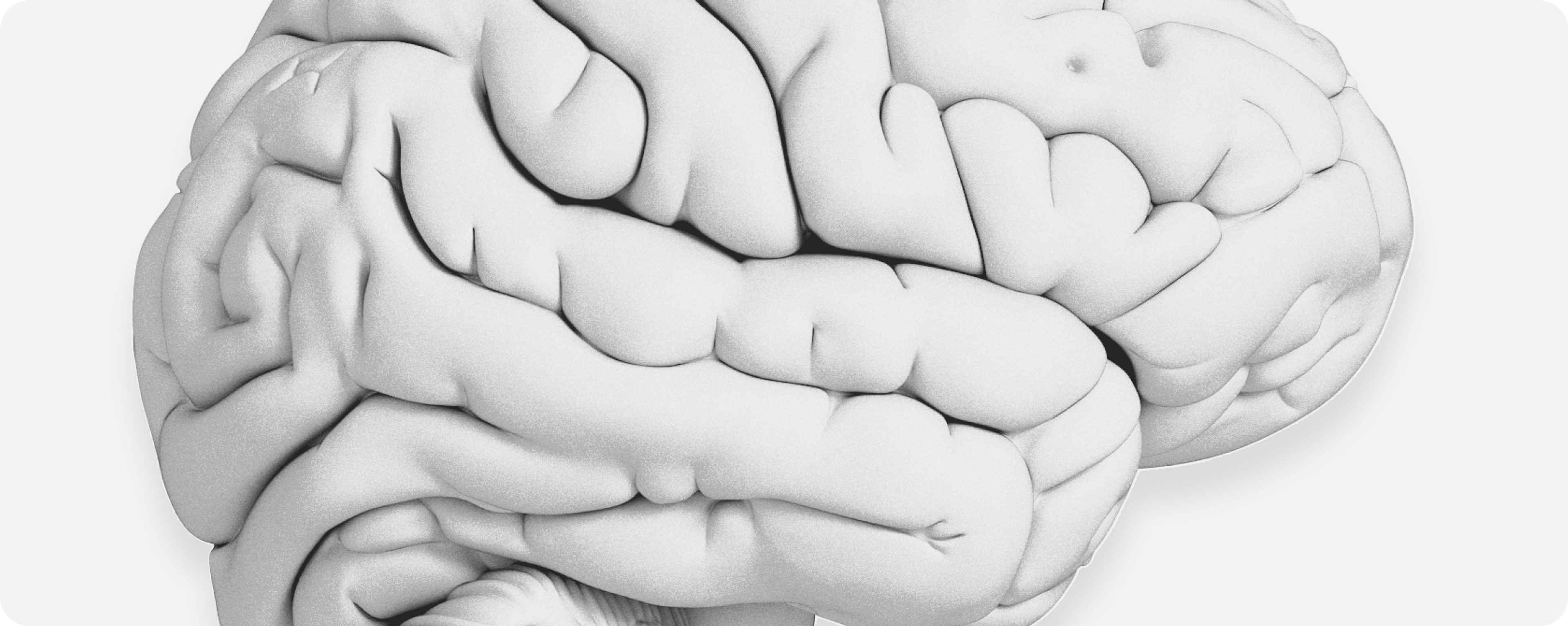
Brain
A 2022 study showed that taking 20 grams of creatine monohydrate daily for one week improved short- and long-term memory compared to those who took the placebo. However, this study used 20 grams which is much higher than the typical dose of 3-5 grams.[4]
Other studies have shown similar results with does at lower levels, but more research is needed to fully understand creatine’s role in brain health.[5]

Mitochondrial health
Many are curious about using creatine for longevity due to its link to mitochondrial health.
Mitochondrial dysfunction is a central hallmark of aging. Creatine can potentially protect the mitochondria and offer positive benefits on cell metabolism; however, most of the findings are from lab or animal studies. Therefore, more human clinical trials are needed into the effects of creatine on mitochondrial function.[6]
Side effects of creatine
When taken in recommended doses, creatine side effects are minimal. Creatine in high doses, however, can result in:
- Stomach cramping
- Bloat
- Fluid retention
- Weight gain
- Liver and kidney damage
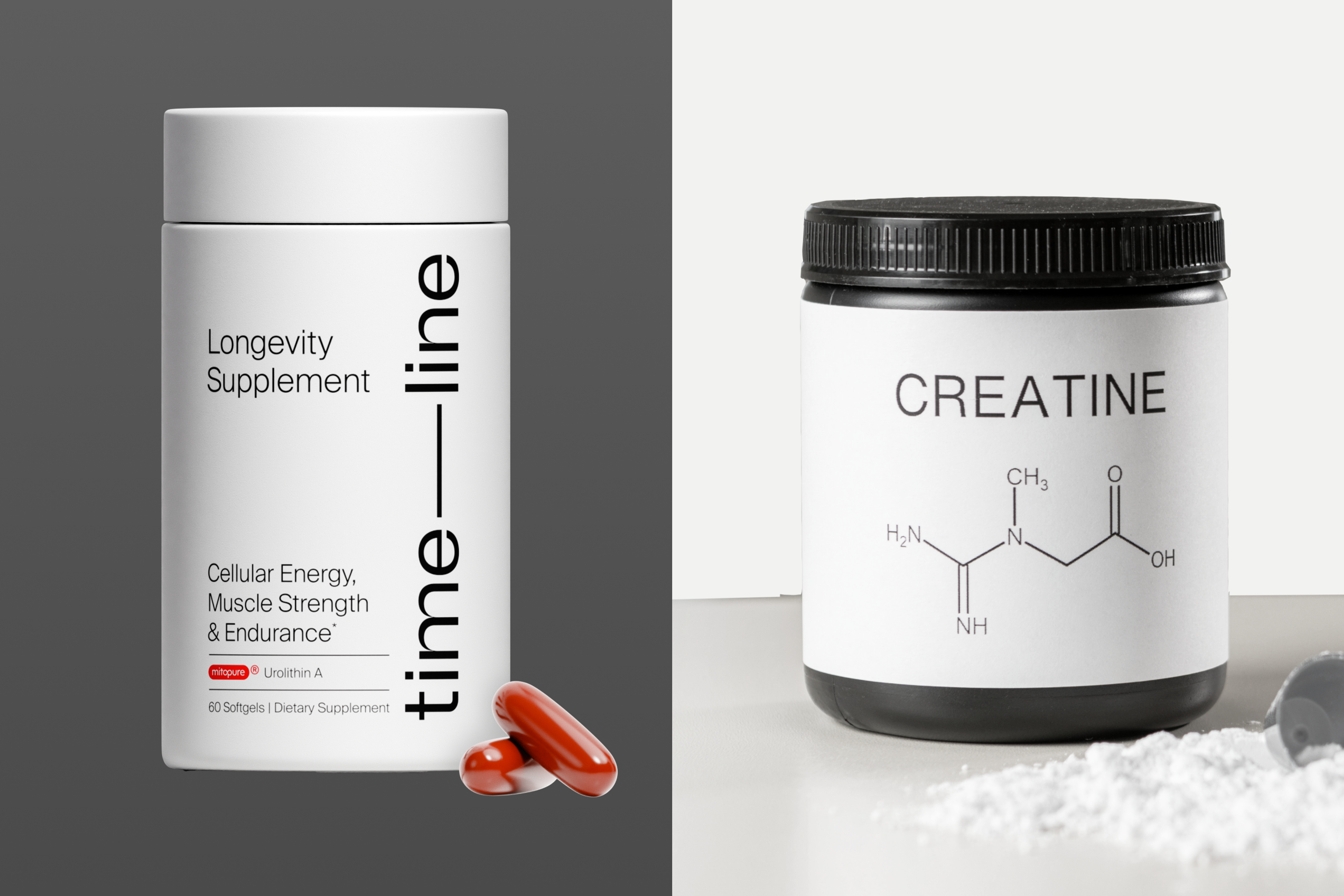
Creatine vs. Urolithin A
Creatine's benefits are significant, and you may be wondering how it compares to other supplements that support muscle health, such as Urolithin A, found in Mitopure®.
While both have been tested for their role in mitochondrial health, and muscle health, the way they work is quite different.
Only Urolithin A directly targets mitochondrial decline by triggering a crucial recycling pathway called mitophagy. Clinical studies have shown that taking Mitopure[7] daily improves muscle health and endurance.[8]
Mitopure may also help with muscle recovery after a hard workout by helping to reduce the natural inflammatory response accompanying exercise.
If you’re looking to support your muscle health and directly target the key pathways of aging, Mitopure® is an excellent choice.
Authors

Written by
Dietitian-Nutritionist, and Health Content Writer

Reviewed by
Director Science Communications
References
- ↑
Marshall RP, Droste JN, Giessing J, Kreider RB. Role of Creatine Supplementation in Conditions Involving Mitochondrial Dysfunction: A Narrative Review. Nutrients. 2022;14(3):529. Published 2022 Jan 26. doi:10.3390/nu14030529
- ↑
Antonio J, Candow DG, Forbes SC, et al. Common questions and misconceptions about creatine supplementation: what does the scientific evidence really show?. J Int Soc Sports Nutr. 2021;18(1):13. Published 2021 Feb 8. doi:10.1186/s12970-021-00412-w
- ↑
Cooper R, Naclerio F, Allgrove J, Jimenez A. Creatine supplementation with specific view to exercise/sports performance: an update. J Int Soc Sports Nutr. 2012;9(1):33. Published 2012 Jul 20. doi:10.1186/1550-2783-9-33
- ↑
Konstantinos Prokopidis, Panagiotis Giannos, Konstantinos K Triantafyllidis, Konstantinos S Kechagias, Scott C Forbes, Darren G Candow, Effects of creatine supplementation on memory in healthy individuals: a systematic review and meta-analysis of randomized controlled trials, Nutrition Reviews, Volume 81, Issue 4, April 2023, Pages 416–427, https://doi.org/10.1093/nutrit/nuac064
- ↑
Avgerinos, Konstantinos I et al. “Effects of creatine supplementation on cognitive function of healthy individuals: A systematic review of randomized controlled trials.” Experimental gerontology vol. 108 (2018): 166-173. doi:10.1016/j.exger.2018.04.013
- ↑
Avgerinos, Konstantinos I et al. “Effects of creatine supplementation on cognitive function of healthy individuals: A systematic review of randomized controlled trials.” Experimental gerontology vol. 108 (2018): 166-173. doi:10.1016/j.exger.2018.04.013
- ↑
Singh A, D'Amico D, Andreux PA, et al. Urolithin A improves muscle strength, exercise performance, and biomarkers of mitochondrial health in a randomized trial in middle-aged adults. Cell Rep Med. 2022;3(5):100633. doi:10.1016/j.xcrm.2022.100633
- ↑
Liu S, D’Amico D, Shankland E, et al. Effect of Urolithin A Supplementation on Muscle Endurance and Mitochondrial Health in Older Adults: A Randomized Clinical Trial. JAMA Netw Open. 2022;5(1):e2144279. doi:10.1001/jamanetworkopen.2021.44279
